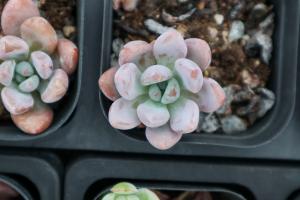Introduction
When it comes to starting a vegetable garden, one crucial decision to make is whether or not to use volunteer tomato plants. These are the plants that sprout up on their own from seeds dropped by the previous year's crop. While some gardeners swear by volunteer tomato plants, others caution against using them. Here, we'll delve into the pros and cons of using volunteer tomato plants in your vegetable garden.
The Pros
One of the most significant advantages of using volunteer tomato plants is that they're free. You won't need to purchase seedlings or seeds to get your garden started. Additionally, volunteer tomato plants are often hardier than their store-bought counterparts because they've already been acclimated to the local climate and soil conditions. They may also have natural resistance to pests and diseases that are prevalent in your area.
The Cons
Despite the advantages, there are some potential downsides to using volunteer tomato plants. For one, you won't have total control over the type of tomato plant you'll end up with. It could be a hybrid of two different varieties or a unique mutation. This means you might not get the same flavor or yield you were hoping for. Additionally, volunteer plants may be more susceptible to disease or pest infestations, which could spread to other plants in your garden.
How to Make the Decision
If you're still unsure whether or not to use volunteer tomato plants, there are several factors to consider. First, think about your goals for your vegetable garden. If you're looking to grow a specific variety of tomato, it may be worth spending the money to purchase seedlings or seeds. Alternatively, if you're willing to accept some variability and unpredictability in your garden, volunteer plants could be an exciting experiment.
Another key consideration is the overall health of the volunteer plants. If they look strong and healthy, they're likely a safe bet. On the other hand, if they appear underdeveloped, wilted, or diseased, it may be best to avoid them. Additionally, consider the space you have available in your garden. Volunteer plants can grow quite large, so make sure you have enough room for them to thrive.
Caring for Volunteer Tomato Plants
If you do decide to use volunteer tomato plants, there are a few care tips to keep in mind. First, make sure they're getting enough water and sunlight. Additionally, you may want to add some organic fertilizer to the soil to give them an extra boost. Finally, keep an eye out for signs of disease or pest infestations, and act quickly if you notice anything suspicious.
Conclusion
Ultimately, the decision of whether or not to use volunteer tomato plants in your vegetable garden is up to you. While they can be a great way to save money and try something new, they do come with some risks. Consider your goals, the health of the plants, and the available space in your garden before making your decision. And if you do decide to use volunteer plants, be sure to care for them properly to give them the best chance of success.

 how many times do yo...
how many times do yo... how many planted tre...
how many planted tre... how many pine trees ...
how many pine trees ... how many pecan trees...
how many pecan trees... how many plants comp...
how many plants comp... how many plants can ...
how many plants can ... how many plants and ...
how many plants and ... how many pepper plan...
how many pepper plan...
































